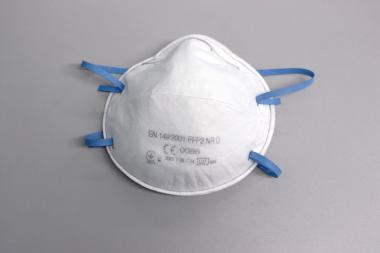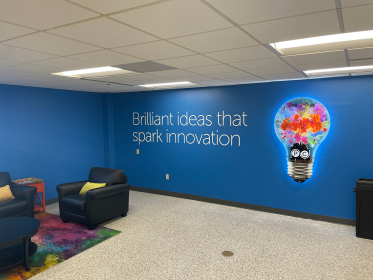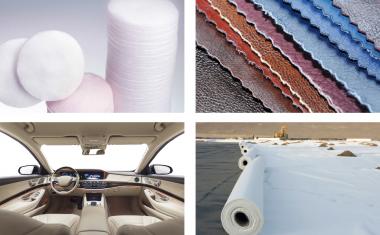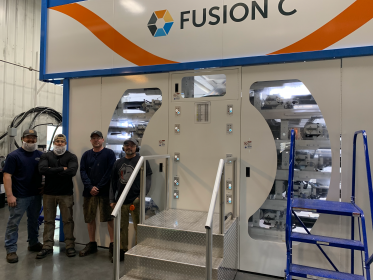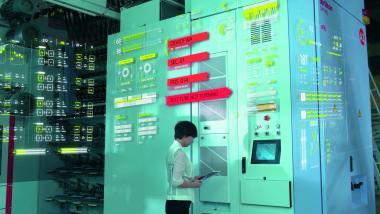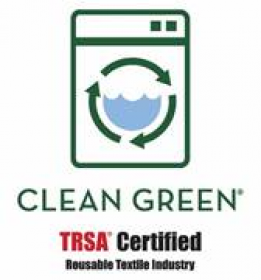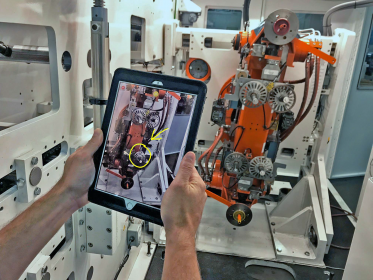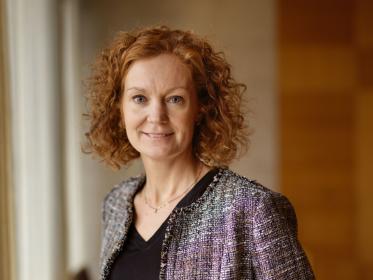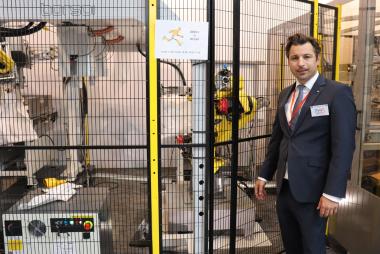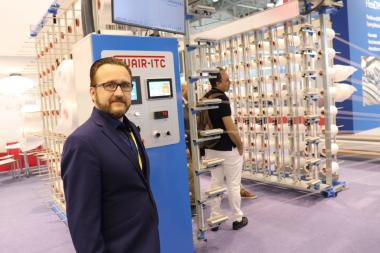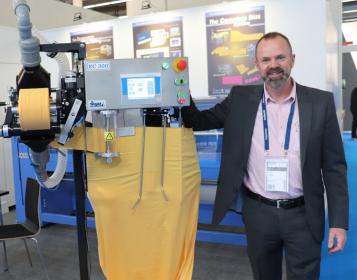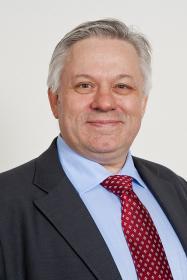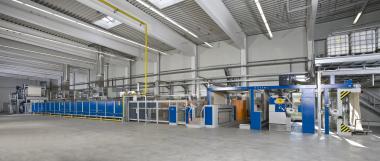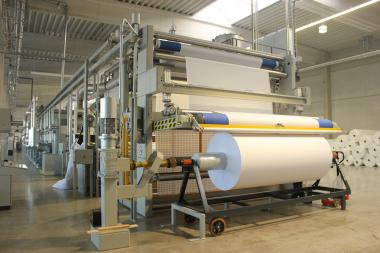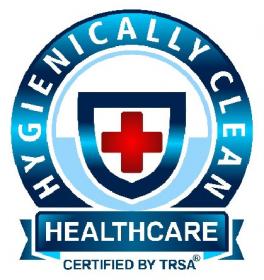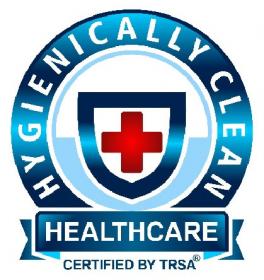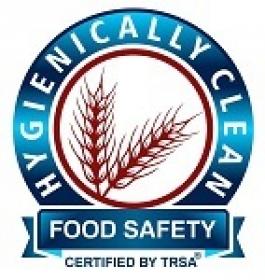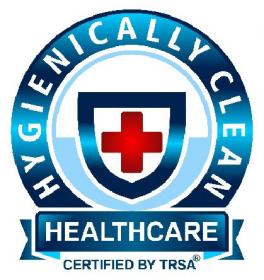Swiss textile machinery going digital: Innovative technology for new business models
Digitalization is a big story in the world of business. It’s all about change, making use of technology to transform attitudes and create new opportunities to grow revenue. At its heart is innovation, with new systems and intelligent use of data. In textiles, the entire value chain is going digital, as evidenced by the commitment of Swiss Textile Machinery Association member firms. Their story – presented here in six ‘chapters’ – spans industry sectors through spinning, weaving, finishing and nonwovens.
Cost savings and more
The process of digitalization in the textile industry today is continuous – faster in some segments than others – but noticeable everywhere. Automation is promising in many areas of finishing and making-up, where initial investments are being made. An example is folding of finished goods, previously a slow manual operation. Now, high-performance automatic folding machines from Swiss company Espritech deliver the potential for cost savings, unlocking new options for positive change at this most labor-intensive stage of production. For manufacturers in low-cost areas, the benefit results from its volume and is a simple financial one. In higher-cost segments, the application of this technology can be part of a completely new business model, taking production closer to the end customer.
Better process, better workplace
Pioneering in the field of digitalization embraces social responsibility along with the introduction of bold new technological innovation. That’s a commitment made by Uster, as it aims to shape future working practices in the textile industry in areas where its systems are applied. In fabric inspection, that means combining the strengths of human capabilities with the performance of Artificial Intelligence. Automatic defect classification with machine learning technology is the next leap in digitalization for fabric manufacturers, following on from automated detection of fabric faults, which is already well established in weaving and finishing mills. This will bring benefits in profitability for the manufacturer – as well as an improved working environment for their operatives, freed from repetitive tasks.
Information, flexible and fast
Access to data is critical in the digitalized world of textiles. It must be flexible, fast and secure, and available to all levels of the company – worldwide. Jakob Muller serves the narrow fabrics industry ideally with a digitalization portal, perfectly developed to provide essential production information. The portal is a browser-based production data acquisition system, with direct access to the machine controls. The system offers unique data monitoring and communication on a global framework. Digitized weave rooms present information 24/7 on desktops at the customer’s plant, as well as on tablets and smartphones remotely.
Making the most of it
Rieter takes advantage of latest digital technology to offer customers a unique experience. Their digital spinning suite helps spinners overcome their daily challenges and manage costs and efficiency more effectively. This all-in-one mill management system connects all the machinery, giving quick access to the right information and a holistic view, from bale to yarn. Users profit from full transparency, and are presented with recommendations based on long-standing experience and know-how. This is digitalization at its most practical, applied to allow spinners to make the most of their installed machinery.
Production, service, training – digital everything
As a solutions provider, Saurer puts digitalization at the core of business, integral to its technology offering to customers. Some latest examples include self-optimization of spinning machines, and a fully automated transport of cylindrical or conical cross-wound packages. These are automatically stored in an internal buffer system, for later feeding to subsequent processes. Of course after-sales service is also digital: the e-shop and machine information hub, together with the web-based training centre, ensure that knowledge is transferred to customers – turning employees into experts.
See the future system today
Autefa Solutions uses the concept of digital twinning, visualizing any real-world concept of a nonwovens line to make it easier for potential customers to grasp the idea. It’s also a big help for training and servicing needs. Most of all they digitalize important parts e.g. of a baling press line with perfectly interconnecting software tools. This is an excellent method for reducing commissioning times. Ordered bale presses reach technical readiness in the form of a digital twin, before they are commissioned in the real world. This typically halves the total time to get the line up and running.
Speaking on behalf of Swiss Textile Machinery Association members, André Imhof, CEO of Autefa Solutions Switzerland AG, says: “Making digitalization our friend opens doors for business model innovations, which is essential for our industry competitiveness. The approach is to digitalize everything that can be digitalized. We won’t stop.”
Swissmem









